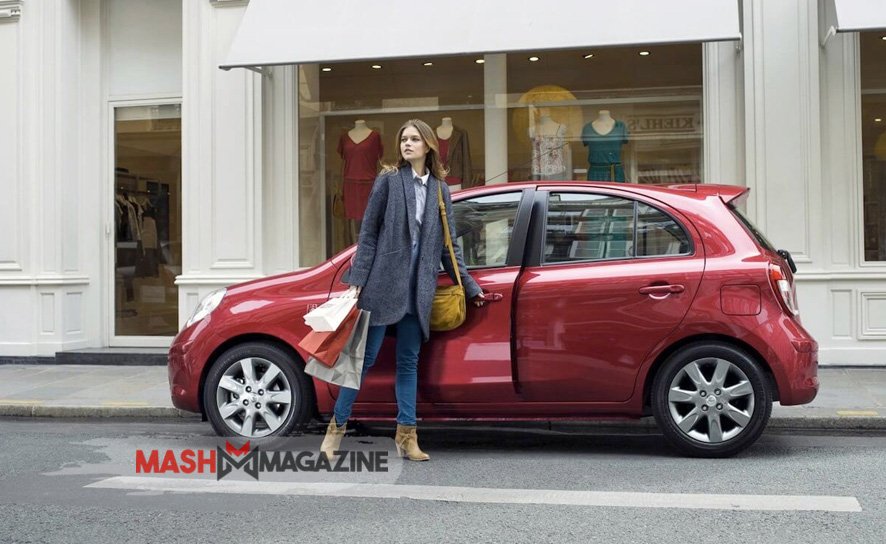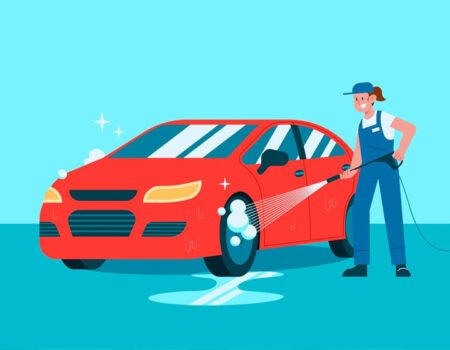Women make up a significant portion of car buyers and drivers today. Understanding the preferences and needs of female drivers is crucial for automakers looking to succeed in this market segment. This article will explore the most popular car models purchased by women, the factors influencing their choices, key trends, and effective marketing strategies targeting female consumers.
Popular Cars for Women
The automotive industry has traditionally been male-dominated, with ads and designs catered predominantly towards men. However, women now account for a substantial percentage of car purchases in many countries. For instance, women buy 60% of all cars sold in Canada and influence 80% of all automobile purchases in America.
With the growing purchasing power of female consumers, automakers can no longer afford to ignore the preferences of women drivers. Tailoring vehicles and marketing campaigns to satisfy this demographic has become imperative.
This article will provide an in-depth look at the kinds of cars most popular among women buyers. Understanding the key factors that shape their preferences and buying behavior is the first step in designing appropriate products and brand messaging.
Popular Cars for Women: A List
Through surveys, sales data analysis, and other research, distinct models emerge as particularly favored by women drivers and car shoppers. Here is a look at some of the top-selling cars among female consumers:
1. Honda CR-V
The CR-V is Honda’s top-selling SUV. Its practical size, fuel efficiency, and versatility make it popular across demographics. The CR-V offers abundant cargo space to accommodate busy families. Safety features like airbags and antilock brakes provide peace of mind. The CR-V also earns excellent reliability ratings.
2. Toyota RAV4
Like the CR-V, the RAV4 strikes a balance between SUV height and maneuverability. Its updated modern styling and hybrid options appeal to female buyers. The RAV4 has ample seating and cargo capacity for everyday use. Stellar resale value is another plus for budget-conscious women shoppers.
3. Ford Escape
This compact SUV offers a smooth ride and good gas mileage. The spacious interior provides flexibility for cargo and passengers. Available in hybrid models, the Escape allows women to reduce their carbon footprint. Advanced tech features cater towards modern women’s preferences.
4. Chevy Equinox
Chevy’s mid-size SUV is valued for its comfort, safety, and fuel efficiency. The rearview camera, OnStar assistance system, and other tech aids simplify driving. A balanced ride and good visibility are appealing for women with kids. It’s also more affordable than many rival SUVs.
5. Nissan Rogue
The Rogue provides agile handling paired with family-friendly space. Eye-catching exterior styling gives it a modern vibe. The well-equipped interior and gas mileage make it a practical option. Nissan’s marketing has directly targeted female drivers as well.
6. Kia Sorento
Kia’s three-row SUV offers abundant passenger and cargo room. The available V6 engine provides brisk acceleration. An intuitive infotainment system and driver aids satisfy tech-savvy women. Kia’s outstanding 10-year/100,000-mile powertrain warranty adds value.
7. BMW X5
For professional women seeking luxury, the X5 hits the sweet spot. Its refined cabin and responsive handling make driving enjoyable. Extensive tech features aid drives. Brand cachet and available six-cylinder engines provide status. Ample room suits carpool duties.
8. Ford Fiesta
This subcompact car squeezes value and personality into an affordable package. The fun-to-drive Fiesta offers sporty handling and thrifty fuel economy. Sync technology and a chilled glove box cater to female tastes. Hatchback models maximize versatility and cargo space.
9. Kia Forte
The compact Forte sedan provides creature comforts on a budget. Available advanced safety tech and warranties offer peace of mind. Gas mileage up to 35 mpg satisfies women seeking efficiency. Sleek styling and vibrant color options add flair.
10. VW Beetle
Modern iterations of the iconic Beetle retain its cute, curvy profile. Peppy performance makes it fun to drive. The hatchback design enhances utility for shopping excursions. Nostalgic brand cachet and customizable colors/upholstery allow women drivers to make it their own.
11. Nissan Versa
This subcompact sedan offers one of the lowest new car prices on the market. Impressive tech features and excellent fuel efficiency defy its modest price tag. The Versa’s nimble handling and ample trunk room make it surprisingly versatile. Value plus reliability attract budget-focused women.
12. Hyundai Tucson
Hyundai’s compact SUV delivers style, comfort, and the latest tech in an affordable package. Features like blind spot monitoring and rear cross traffic alert provide confidence on the road. Efficient turbo engines and a modern cabin design appeal to female sensibilities. Strong value equates to popularity.
This range of top sellers illustrates the diversity of vehicles favored by women based on priorities like price, efficiency, space, and brand image. However, many complex factors shape car purchase decisions.
Factors Influencing Women’s Car Choices
Why do female drivers lean towards certain models over others? Here are some of the key considerations that drive their choices:
Lifestyle needs – Women evaluate how well a car fits in with their daily routines. Those with kids prize family-friendly features like ample cargo room and easy access. Single women want something stylish yet practical. Active women need roof racks for gear. Understanding women’s diverse lifestyles is essential.
Budget – Affordability weighs heavily in most purchases. Women browse competitively priced options that offer the most value. Brands that provide features and technology seen as “must-haves” at lower prices have an advantage. Demand for used vehicles is also strong among cost-conscious female buyers.
Safety – Safety ranks very high among women’s priorities. They favor models with high crash test ratings and advanced driver assistance features like blind spot detection or lane keep assist. These aid comfort and confidence on the road, especially for less experienced drivers.
Fuel efficiency – With women driving fewer annual miles on average, gas mileage is a bigger factor relative to men. Hybrid and electric models are attractive options for improving efficiency. This allows women to save on fuel costs while reducing environmental impact.
Family size – For mothers and women chauffeuring others, interior room and cargo capacity are vital. Minivans and larger SUVs with 3 rows of seating have obvious appeal for transporting kids, pets, sports gear, and more.
Performance – While power and acceleration were once considered more male preferences, today’s women also value responsive acceleration and powerful engines in certain segments. The rise of luxury SUVs points to this appetite among some demographics.
Online reviews – The proliferation of car reviews and discussion forums online has greatly enabled female buyers’ research. Seeing feedback from other women on makes/models provides assurance during the shopping process.
Social media influence – Beyond reviews, social media shapes perceptions. Seeing peers posting pictures with a trendy, stylish new car model can spark interest in that brand. Automotive marketing via influencers also sways women.
Emotional response – While men tend to prioritize functionality and specs, women are more influenced by emotional, visual, and sensory aspects of vehicles. How a car’s style, colors, interior feel, and brand image resonates on a personal level factors into purchases.
In summary, combining both rational calculations and emotional desires guides most women’s car selections today.
Trends in Women’s Car Preferences
Several notable shifts have occurred in the kinds of vehicles women prefer over the years:
SUV popularity – SUVs and crossovers have surged in appeal among female drivers thanks to their commanding view of the road, flexible cargo space, and family-friendly credentials. Compact SUVs strike an optimal balance for many women.
Eco-friendly choices – Sustainability is increasingly prioritized by female consumers across industries. The demand for hybrid, plug-in, and electric cars that reduce fossil fuel dependence and carbon emissions has climbed steadily.
Tech-savvy options – With women using technology at high rates, vehicles emphasizing advanced infotainment systems, digital assistance, Wi-Fi connectivity and intuitive controls satisfy these buyers.
Premium brands – Brands like BMW, Audi, Lexus, and Mercedes have made inroads among aspirational women seeking status, luxury, and performance. Distinctive styling also attracts image-conscious women.
Practicality – Despite the SUV craze, economical sedans and hatchbacks mixing affordability, efficiency, and functionality remain popular with pragmatic women. Value, versatility, and parking ease maintain their appeal.
Self-expression – Car colors, custom upholstery, and accessory options let women customize rides to reflect their personality. Bold colors and statement-making designs enable self-expression.
As women’s roles, priorities, and tastes evolve, their automobile preferences will continue shifting. Tracking these trends is vital for the industry.
Marketing Strategies for Automakers Targeting Women
Given the sizeable purchasing power of female car shoppers, implementing marketing strategies tailored specifically to women is a must. Here are some proven tactics:
Focus on design – Avoid hyper-masculine styling and colors. Embrace flowing, organic lines and vibrant hues in women’s preferences. Interiors should highlight comfort, premium materials, and attention to detail.
Highlight safety – Communicate safety benefits like crash protection, avoidance technology, easy handling, and night driving assist to appeal to women’s risk-aversion and protection instincts.
Feature tech perks – Tout tech features that simplify and enhance driving for women like voice commands, backup cameras, anti-theft systems, and parking assists to build interest and trust.
Promote efficiency – Eco-friendly and economical mileage merits mention to attract women seeking cost and fuel savings. Provide statistical comparisons against rivals.
Use relatable messaging – Show women drivers in everyday contexts they recognize. Address the roles vehicles play in the lives of busy moms, young professionals, empty nesters, etc.
Leverage social media – Build brand affinity through content and community-building where women spend time, like Facebook groups and parenting forums. Work with influencers popular among women.
Highlight cargo space – Demonstrate vehicle capacity and flexible configurations for child passengers, pets, groceries, and athletic pursuits that women regularly transport.
Use female-focused media – Advertise in women’s magazines, “mommy” blogs, female-skewing TV shows, and other media frequented by potential buyers. Feature women prominently.
The automobile marketplace is now consumer-driven. Manufacturers attuned to women’s desires and branding tailored to them are most likely to convert female shoppers into loyal customers for years to come.
Conclusion
Women’s automobile preferences today are varied and multifaceted. While SUVs and crossovers enjoy massive popularity for their family-hauling credentials, smaller sedans and hatchbacks mixing practicality with efficiency also satisfy women buyers. Regardless of vehicle type, advanced safety equipment, intuitive technology, fuel economy, and versatile cargo capabilities rank high among women’s priorities.
Understanding the lifestyle needs, budget constraints, and values of female consumers allows automakers to design and market vehicles resonating with this demographic. As women’s economic clout expands and the auto industry becomes more competitive, catering intelligently to women buyers will be key to brand growth and profitability. Companies who recognize and respond to the preferences of female drivers will be poised for success.
FAQs
What are the most important factors for women when buying a car?
Safety, reliability, fuel efficiency, affordability, interior room, cargo capacity, advanced technology features, and resale value tend to be top priorities for women selecting a new vehicle. The specific blend of preferences varies individually though.
Do women care more about a car’s looks than men?
Generally yes. The style and color of the vehicle along with the look and feel of the interior often play a bigger role in women’s purchases. Cute designs and customization options tend to appeal more to female buyers.
Why are SUVs gaining popularity among women drivers?
The increased ride height improves the sense of safety for women. Larger SUVs also provide ample passenger and cargo room for child transportation duties many women fulfill. All-wheel drive options add confidence in slippery conditions.
What high-tech features do female car shoppers look for most?
Hands-free phone integration, voice controls, parking sensors and cameras, blind spot detection, keyless entry, anti-theft protection, and infotainment systems tend to rank highest among desired tech perks for women buyers.
Do women care about performance and driving dynamics?
Absolutely. While horsepower and acceleration appeal more to enthusiasts, women shopping performance segments still expect responsive power and agile handling. Smooth, comfortable rides also satisfy women not seeking outright speed.








No Comment! Be the first one.